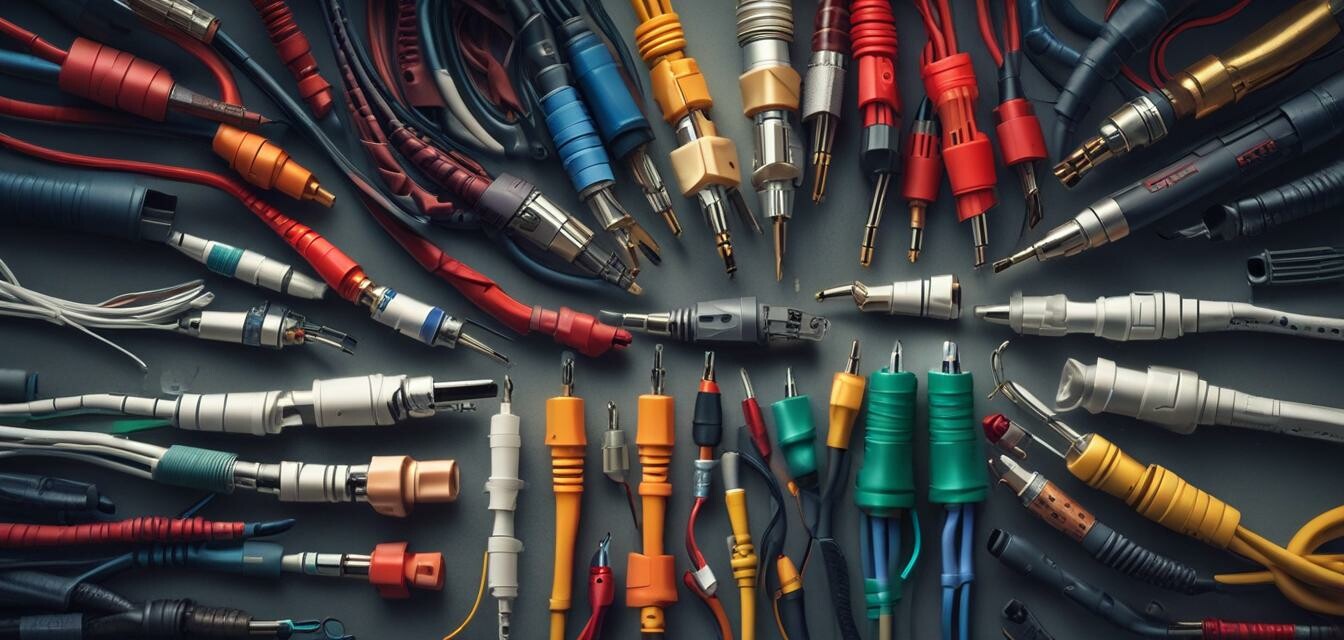
How to choose the right audio/video cables
Key Takeaways
- Audio/video cables vary in type and functionality; understanding their differences is essential.
- Consider the specifications based on your project requirements, such as compatibility with devices.
- Look for durability and quality to ensure performance, especially in demanding environments.
- Different applications require different cables, including HDMI, VGA, and RCA.
- Always prioritize the right connectors for seamless integration in your setups.
Selecting the right audio/video cables is crucial for any electrical project, whether you are installing a home theater, setting up a conference room, or wiring a commercial space. With a multitude of cable types available, understanding the specifications and intended uses of various cables will ensure you choose the best option for your needs.
Understanding Different Types of Audio/Video Cables
| Cable Type | Usage | Features |
|---|---|---|
| HDMI | Home theater, gaming consoles, and monitors | Supports high-definition video and audio |
| VGA | Older computers and projectors | Analog video signal; limited resolutions |
| RCA | Connecting TVs, audio devices, and older game consoles | Composite video and audio; often color-coded |
| Optical | Surround sound systems | Digital audio transmission over fiber optic |
| Coaxial | Cable TV and internet connections | Single copper wire surrounded by insulation |
Key Features to Consider
- Compatibility: Ensure that the cables you choose are compatible with the devices you will be connecting. Check the input/output ports on both devices before purchasing.
- Length: Measure the distance between your devices to determine the appropriate cable length. Consider buying slightly longer cables to account for any layout changes.
- Quality: Look for cables with better build quality, ensuring they can withstand bending and frequent use without damage. Higher-quality cables tend to offer better signal integrity.
- Connector Types: Ensure the connector types match your devices for optimal performance; this may include standard connectors like HDMI, RCA, or custom connectors for specific devices.
- Purpose: Some cables are optimized for specific uses, such as video transmission or audio clarity. Identify the primary function of your setup to select the best cables.
Popular Audio/Video Cables
Knipex 90 20 185 Sb Hose And Tube Cutter
A reliable cutter designed for precise cuts on plastic conduit pipes and hoses, featuring fiberglass reinforced plastic handles.
Learn MorePractical Uses for Audio/Video Cables
Understanding where and how to use audio/video cables will guide your purchasing decisions. Here’s a quick look at some practical applications:
- Home Theaters: HDMI cables are essential for transmitting high-quality video and audio from devices like Blu-ray players and receivers.
- Projectors: VGA or HDMI cables may be used to connect laptops to projectors for presentations or educational purposes.
- Audio Systems: RCA cables can connect various audio equipment, from speakers to amplifiers, ensuring superior sound quality.
Additional Cables to Consider
240V AC to DC 12V 30A Power Supply Driver
Ideal for powering CCTV cameras and LED lights, this versatile driver ensures stable voltage output for your devices.
Learn MoreConclusion
Choosing the right audio/video cables involves knowing the specifications and features that cater to your specific needs. By understanding the different types available, assessing their compatibility, and considering durability, electricians can ensure they make informed decisions for optimal performance in their projects. As you venture into selecting your cables, remember to explore our extensive audio/video cable accessories to find the perfect match for your projects.
Tips for Beginners
- Always have extra cables on hand to avoid interruptions during setups.
- Label cables for easier identification during installation and troubleshooting.
- Invest in good quality cables to prevent connection issues in the long run.
- Use cable ties or management systems to keep your workspace organized.
- Check the specifications regularly to stay informed about newer cable technology.
Further Resources
For those looking to explore deeper into the world of electrician supplies, check out these detailed guides:
Sourcing map Spiral Cable Wrap
A practical solution for organizing your cables, featuring durable and flexible design options for any setup.
Learn More

